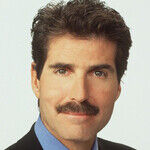As the city of Volgograd suffers two suicide bombings in quick succession this week, Russia is welcoming in the new year and the upcoming Olympic Games in Sochi with heightened concern over the persistent terrorist threat it faces. After an explosion at the train station left 18 dead, the following day saw an attack on a rush-hour bus carrying students. Volgograd has a population of 1 million, lies just over 400 miles from Sochi and is better-known to students of military history by the name it carried during World War II — Stalingrad.
Extremist groups have been issuing threats directly targeting the upcoming Winter Olympics, and these attacks provide a grim confirmation that further attacks, with potentially higher casualty rates, may be on the horizon.
With New Year's being the principal holiday each year for many Russians, choosing this period as a time for the attack has both practical and symbolic advantages. With many Russians trying to get home to their families, transit hubs make a particularly appealing target. And the bloodshed casts a very morbid light on what should otherwise be joyful festivities. A period of mourning and remembrance instituted by Volgograd authorities effectively canceled public celebrations.
Russian President Vladimir Putin quickly responded to the attacks by convening meetings with senior members of his government and the security services in order to respond rapidly and forcefully to the heightened threats. Putin's reputation is on the line with the Sochi games, which are intrinsically linked to him and his personal political machine. The Winter Olympics open Feb. 7, and a successful attack while the glare of the international media is directed at Russia could seriously undermine Putin.
As would be expected, the International Olympic Committee rallied around Russia, stressing its satisfaction that Putin will be able to ensure peaceful games. The accuracy of this forecast, however, is still to be determined.
One theory being proposed by Russian investigators is that both bombings were coordinated and under the supervision of the Islamic militant leader Doku Umarov. This Chechen warlord has been called Russia's Osama bin Laden and has come out against the Sochi games as a satanic endeavor occurring on the bones of dead Muslims from the Caucasus. The conflict between Putin and Umarov has all the features of a personal struggle between two very strong leaders, each trying to achieve maximum advantage from the position that he is holding.
With a high wall of security being raised around Sochi and the athletic facilities themselves, the softer and therefore more appealing targets for Umarov and other Chechen rebels lie elsewhere in Russia.
While Putin is attempting to use the Olympic Games to showcase the revival of Russia under his rule, the unresolved question of Chechnya threatens to derail the publicity campaign and instead potentially focus attention on Moscow's inability to address this lingering internal threat. This would be a nightmare for the Kremlin, and Putin will use all the means at his disposal to prevent it.
Chechens have fiercely resisted Russian rule for more than a century and continue to be as opposed to assimilation as when the Imperial Russian Army first attempted to exert some manner of control and exact some measure of tribute to the czar in distant Moscow. Since Putin's military triumph in Grozny, rather than simply accept the Russian yoke, Chechen rebels have instead swapped direct armed engagement on the battlefield for a series of brutal but often highly successful asymmetrical terrorist attacks. Particularly memorable ones include the 2002 Moscow theater siege and the 2004 Beslan school tragedy. As international jihad has expanded over the past decade, and Chechen fighters who have traveled abroad to demonstrate their skills and fortitude have gained a formidable reputation as being mercilessly effective.
Putin's rule of Russia over the years has been highly personal, and the Sochi games are just another example of Putin's imprinting on his country his unique vision of what a modern Russian empire should look like. Respect from other leading countries and multilateral institutions is vital to him and the long-term strategy he has laid out for his country. Unsurprisingly, the faceoff with Umarov and other Chechen rebels is equally personal.
It was from Stalingrad that the Red Army successfully turned back Nazi incursion into Mother Russia and shifted the balance of World War II in the process. This important historical fact will not be lost on anyone in the Kremlin, on the streets of Volgograd, in the international media or watching the Sochi games from the safety of a sofa back at home.
Putin must succeed in delivering the successful Winter Olympics he has promised. Perhaps the better question to ask now is simply: At what cost?
Timothy Spangler is a writer and commentator who divides his time between Los Angeles and London. His radio show, "The Bigger Picture with Timothy Spangler," airs every Sunday night from 10 p.m. to midnight Pacific time on KRLA AM 870. To find out more about Timothy Spangler and read features by other Creators Syndicate writers and cartoonists, visit the Creators Syndicate Web page at www.creators.com.






View Comments